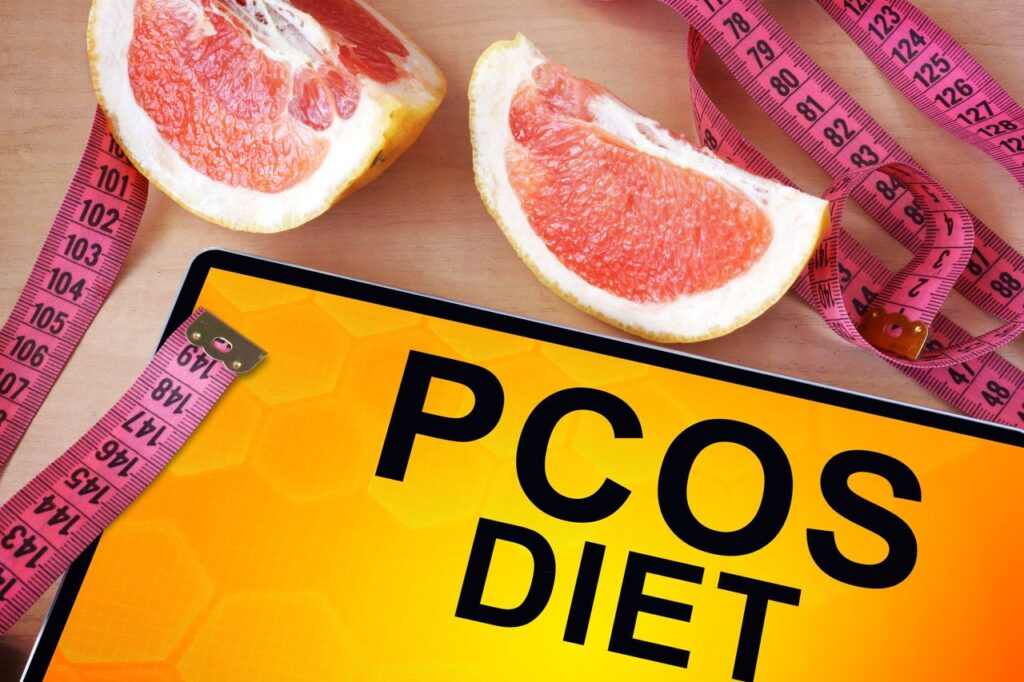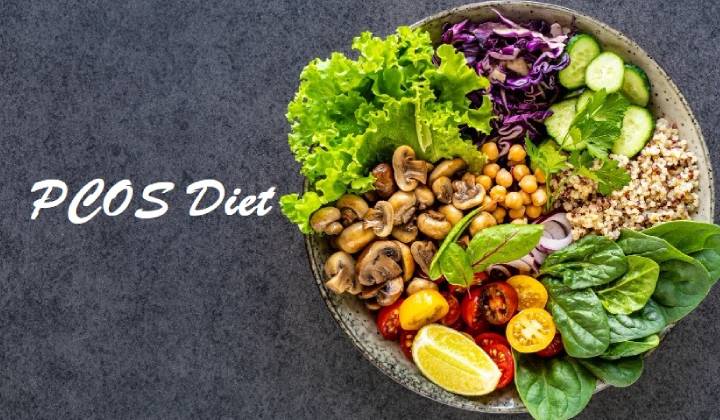Polycystic Ovary Syndrome (PCOS) is a common concern for many women in today’s world. It can bring about various challenges, including weight gain, irregular menstrual cycles, acne, and more. Managing PCOS effectively involves paying attention to your diet, especially when it comes to regulating insulin levels.
Many women with PCOS experience insulin resistance, which can lead to higher insulin production and a host of symptoms. Insulin is a crucial hormone that helps the body use glucose for energy, but when its levels are too high, it can lead to problems like increased hair growth, weight gain, and more.
To manage PCOS and maintain a healthy weight, it’s essential to be mindful of what you eat. Here’s a simple guide to help you make the right dietary choices and control your PCOS symptoms.

Foods to Avoid:
Refined Carbohydrates: Foods like white bread, pastries, muffins, and white potatoes can worsen insulin resistance and cause inflammation, making your PCOS symptoms more challenging.
Sugary Snacks or Drinks: Excessive sugar is a major contributor to insulin resistance. Check food labels for hidden sugars like sucrose, dextrose, or high fructose corn syrup.
Inflammatory Foods: Foods like French fries, margarine, red meat, and processed meats can exacerbate PCOS symptoms. Try to minimize their consumption.
PCOS Diet Plan: Do’s and Don’ts
Do’s:
Maintain a Healthy Weight: If you’re overweight, focus on regular exercise and a balanced diet to shed excess pounds.
Practice Yoga and Pranayama: Incorporate yoga asanas and deep-breathing exercises into your routine to help reduce stress and promote overall well-being.
Prioritize Sleep: Ensure you get adequate sleep to support hormonal balance and reduce PCOS symptoms.
Monitor Your Menstrual Cycle: Keeping track of your menstrual cycle can help you better understand your body’s patterns and make necessary adjustments.
Don’ts:
Avoid Smoking: Smoking can exacerbate PCOS symptoms, so it’s best to steer clear of this habit.
Say No to Alcohol: Alcohol consumption can disrupt hormone balance, so it’s advisable to limit or avoid it.
Maintain a Disciplined Lifestyle: Skipping meals or sleep can disrupt your body’s rhythms. A structured routine is key to managing PCOS effectively.
Limit Hormonal Treatment: If possible, try to minimize the use of hormonal treatments, as they can have side effects.
Foods to Include:
High-Fiber Foods: Opt for foods like broccoli, cauliflower, peppers, almonds, sweet potatoes, and pumpkin. These high-fiber choices help stabilize blood sugar levels and combat insulin resistance.
Lean Proteins: Include lean proteins like chicken, fish, and egg whites in your diet. They keep you feeling full longer and help maintain stable blood sugar levels.
Anti-Inflammatory Foods: PCOS often involves inflammation, so focus on foods with anti-inflammatory properties. Consider adding tomatoes, spinach, strawberries, walnuts, almonds, turmeric, and fatty fish like sardines and salmon to your meals.
In summary, a well-balanced PCOS diet can make a significant difference in managing your symptoms and supporting weight loss. By following these do’s and don’ts and choosing the right foods, you can take charge of your PCOS journey and enjoy a healthier, more balanced life.




